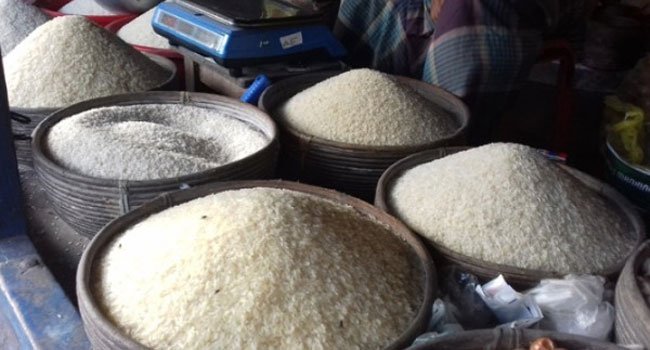Supermarket dream in Khilgaon in the capital. Want to know the price of the buyer by showing a bag of 25 kg rice. The salesman told Tk two thousand The buyer asked again, 'How much'? The answer comes two thousand rupees. How many kg? The answer was 25 kilograms. So how much is the price of every kg? The answer came 80 rupees. What are these moves? Answer: Number one Nazir Shail. The buyer's question, but the price of two numbers? The salesman said, we have two quality Nasir Shailas open. One kg of Tk 62, the other is Tk 66. And Miniket has 52 and 58 rupees.
In the context of rice, the sales worker explained, there was no duty on rice import. There is no money to open the LC. Imported at the same time, the price was somewhat moderate. 28 percent of the new budget has been imposed on imports. Normally the import is almost closed. Understanding the opportunity, the owners of the mill increased the price. The price of rice is rising in the wholesale and retail market due to the normal reason. Since the announcement of the budget, the price of rice has been increasing gradually, he said, so many people thought this time before the passage of the budget, some amendments will be brought about. But in the day when the budget passed without amendment yesterday, the price has increased by three to four rupees in KG.
At the retail market yesterday, the price of coarse gold rice was Tk 42 to 45. That was last week from 38 to 42. Paizam was sold at Tk 50 to Tk 52, but in the previous week, the rice price was between Tk 48 and 50. Miniket 60 to 62 taka and Nazirshail sold at Tk 66. Vendors say that the price of chikon rice was less than two to four paisa per kg last week. Prior to the floods, the thick rice KG was 34 to 38 taka and Chikon rice KG was Tk 40-40. After the flood, the prices of rice flour increased at Tk 58 to Tk 64. Chicken rice became costly at Tk 65-70. But the amount of rice that was imported to control the price of rice would have been reduced, but did not return to the previous price.